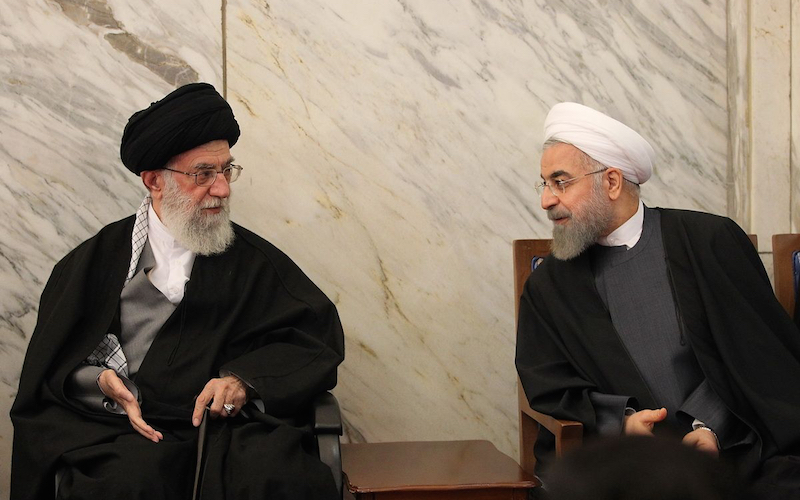
U.S. and EU Interests are Diverging over Iran
SHANGHAI — Recently, Peter Wittig, German Ambassador to the US, said that alternatives to a deal to curb Iran’s nuclear program are “not very attractive.” He added that Germany and other nations are ready to move beyond sanctions, despite what the US Congress might do.
It was a reference to last Thursday, when US Senate passed a controversial bill that will ensure a role for Congress in any nuclear talks between President Obama, Iran and half a dozen world powers.
Despite the White House’s opposition, the bill gives Congress the ability to review and to reject a final deal with Iran. In the latter case, President Obama could still resort to executive action to offer sanctions relief, in cooperation with EU and UN– but it would be only a temporary measure.
The House is also set to vote on a controversial bill already passed by the Senate that will ensure a role for Congress in any nuclear talks between President Obama, Iran and half a dozen world powers. In Congress, the bill is seen as reclaiming congressional authority over foreign policy, after years of presidential domination.
Iranian leader Ayatollah Ali Khamenei saw the bill as a sign of “disintegrating” U.S. foreign policy. In Tehran, it is seen as paving the way for Republican senators to scrap any nuclear deal once President Obama’s term ends.
Indeed, Washington’s deep differences about the Iran policy have potential to undermine progress in the nuclear talks.
Years ago, Dr. Kissinger liked to ask: “Who do I call if I want to call Europe?” Today, Iranians are asking the same question – but about America.
In Europe, the question is, will Brussels bandwagon the US President, or US Congress – or will it act on its own?
Reforms or sanctions
According to Ambassador Wittig, military strikes are not an alternative to a negotiated deal. “It could set back Iran’s ambitions for a couple months, maybe years, but it would not be lasting and not be very viable,” he said.
In Congress, a forceful intervention has a significant number of supporters, however.
Despite the sanctions, Iran recently exported a record 7 million barrels of oil per day. Despite decades of international insulation, it is the second-largest economy in the Middle East and North Africa, after Saudi Arabia. In 2014, its GDP amounted to an estimated US$ 406 billion.
Like Egypt, the region’s most populous nation, it has almost 81 million people.
Nevertheless, sanctions have caused severe stagnation. Inflationary pressures peaked on a year-to-year basis at 35% in 2013, while the unemployment rate climbed to 12-13% and every fifth Iranian fell below the poverty line.
Last year, Iran’s economy rebounded out of a recession with growth estimated at 3.0%. The turnaround came on the back of a temporary and partial easing of sanctions imposed on Iran’s oil exports.
Petrochemical products account for more than an estimated 80% of Iran’s exports. Iran has the world’s fourth-largest proved crude oil reserves and the world’s second-largest natural gas reserves.
Iran’s economic potential is fueled by large buyers of its crude and natural gas in China, India, Japan, South Korea, and Turkey. As Europe remains highly reliant on Russian energy supplies, Iran holds potential as a potential alternative supplier.
What makes Tehran’s role even more attractive is the fact that Iran has pressed ahead with economic reforms – as even the International Monetary Fund (IMF) acknowledged a year ago.
In late 2013, EU foreign relations chief Catherine Ashton brokered a vital deal with Iran. On April 2, 2015, Iran and the so-called 5+1 parties – the US, the UK, France, Germany, Russia and China – reached a mutual understanding.
In Lausanne, Federica Mogherini, Ashton’s successor, chaired the final-stage talks, which were hailed by EU leaders, including German chancellor Angela Merkel and French president Francois Hollande, and greeted by street parties in Tehran.
The critical point in the Lausanne statement involves lifting of the sanctions imposed on Iran as soon as agreement is reached, presumably by June 30. But will that happen?
Stability – not further destabilization
In a slow progress scenario, the talks would result in a final deal, a gradual phase-out of sanctions but heavy compliance requirements, which would mean incremental improvement in 2015-16.
In the case of no deal, Iran’s oil production would remain weak, which would work against Iran’s energy clients in the emerging world, particularly in Asia. While a no-deal scenario would cast a dark shadow over global growth prospects, it would benefit those that stand to gain from Brent oil’s rebound to US$65 by the end of 2015 and significantly higher a year later.
There is a third scenario, but currently it is the least likely to materialize.
In a rapid-progress scenario, sanctions would be phased out swiftly, which would push investment into the oil sector. It would benefit consumer welfare worldwide (Brent oil prices could fall below US$50 per barrel), particularly in emerging Asia (which unlike advanced economies is amid an energy-intensive development phase). But this scenario would force new adjustments in non-OPEC producers (particularly the US), which many of them oppose.
Yet, the simple fact remains that both advanced Europe and emerging Asia would benefit from a rapid progress scenario.
What’s needed in Lausanne is great restraint to reach the right outcome and to ensure it prevails – even after the next US elections.
This article was originally posted in EUobserver.

